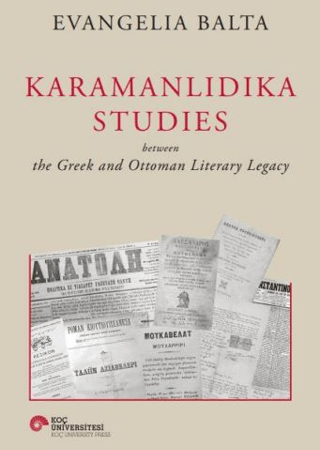544 pp, hb, in English.
This collection gathers the recent studies of Evangelia Balta, who has contributed since 1978 to the growing
interest in Karamanlidika Studies through her research and publications. This interdisciplinary field, a branch of
Ottoman Studies, covers history, literature, anthropology, and linguistics, exploring topics related to the history
and culture of the Karamanlis or Karamanlidhes, the Turkish-speaking Orthodox Anatolians, who settled in
Greece after the Treaty of Lausanne (1923). As one of the many non-Muslim groups that made up multi-cultural
Ottoman society, Karamanlidhes, from the beginning of the eighteenth century, defined themselves and left
their ethnoreligious cultural traces on the Ottoman legacy through their publications in Turkish using the Greek
alphabet. Their book production was a vehicle for circulating cultural goods produced in the Empire, Europe,
and the Greek Kingdom. It also served as a bridge between the Ottoman world and Greek education after the
emergence of nationalism.
The volume Karamanlidika Studies between the Greek and Ottoman Literary Legacy explores the perception of
various cultures by the Orthodox Rums and opens up new areas of discussion on refugee poetry, as well as the
life and work of the authors, editors, and translators of Karamanlidika books. Furthermore, it spurs the search
for unknown manuscripts containing memoirs, autobiographies, and Ottoman archival material.
Evangelia Balta is Director Emerita of Ottoman Studies at the National Hellenic Research Foundation (Athens) and a Visiting Professor
at Bilkent University




